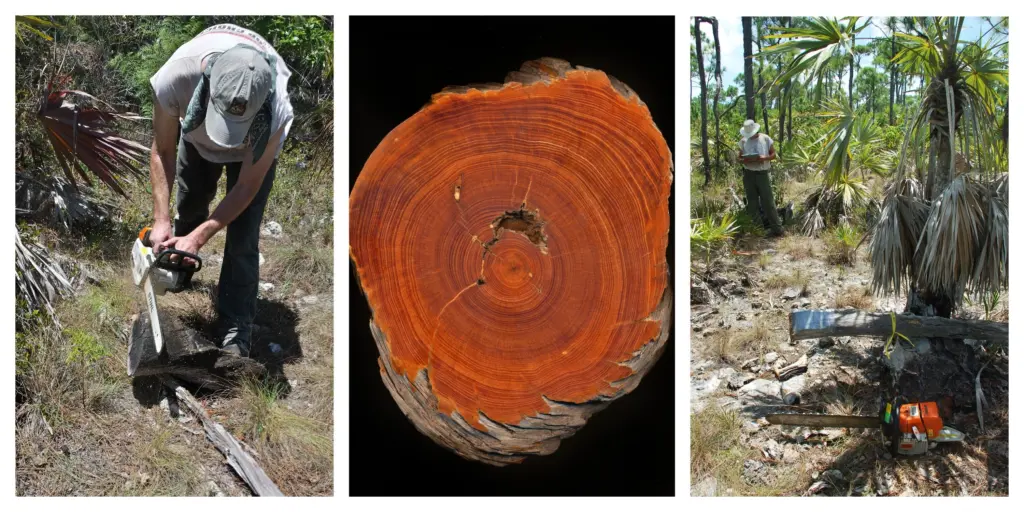MOSCOW, ID – Tropical forests, long considered vulnerable to drought, may be more resilient than expected — at least for now.
A sweeping new study published in Science — and co-authored by University of Idaho Associate Professor Grant Harley — reveals that tree growth across the tropics declined only modestly during the driest years of the past century.
The global study — published by members of the Tropical Tree-Ring Network and led by Professor Pieter Zuidema of Wageningen University in the Netherlands — analyzed 483 tree-ring samples spanning tropical forests in South America, Africa, Asia, Australia and more. Results show that while drought reduces tree stem growth, the average decrease is just 2.5% during the driest 10% of years since 1930. The study also finds that growth rebounds quickly and is often boosted during wetter years, indicating a surprising level of climate resilience.
“These findings are important because they suggest that tropical forests — so vital for carbon storage and climate regulation — have not yet reached a drought tipping point,” Harley said. “But we also see that this resilience is uneven and likely to diminish with continued global warming and atmospheric drying.”
Harley contributed tree-ring data from the Caribbean, Bangladesh and the southern tip of Florida, shedding light on how subtropical forests in the U.S. respond to climate extremes.
The study — titled “Pantropical tree rings show small effects of drought on stem growth” — is the first to use global tree-ring data from across the tropics to assess how drought affects the ability of trees to sequester carbon through stem growth. The study’s message is nuanced but critical: Tropical tree growth is currently resilient to drought at a global scale, but that resilience varies by location and is at risk under escalating climate change. The results have major implications for global climate models, which rely on continued carbon absorption by tropical forests to offset fossil fuel emissions.
“This isn’t a blanket success story,” Harley said. “Some areas are already showing signs of stress, and the models suggest that this stress will worsen. Tropical forests may not remain as reliable a carbon sink in the future if droughts become more intense or frequent.”





